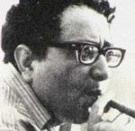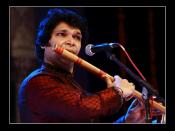MOHAN RAKESH, MODERNISM, AND THE POSTCOLONIAL PRESENT
Abstract
Mohan Rakesh, Modernism, and the Postcolonial Present": The fin-de-siécle critical project of redefining the spatio-temporal boundaries of modernism has lately gathered new momentum by taking up the question of modernism's relation to colonialism and postcolonialism. Appearing at the intersection of modernist studies and postcolonial studies, important recent essays by Simon Gikandi, Susan Stanford Friedman, Ariela Freedman, and others argue for a recovery of the global networks of twentieth-century modernism that is predicated on cultural interflows rather than a unidirectional and hierarchical relation between the Western center and its non-Western peripheries. Linked by the emerging concept of "geomodernism," the new approaches, however, continue to privilege Western locations and the European languages, especially English, as the primary sites of modernity, often relegating non-Western spaces and non-Europhone works to the status of "vernacular" art.
This essay extends the reach of geomodernism through a discussion of Mohan Rakesh (1925-1972), the iconic post-independence playwright in India's majority language, Hindi, and one of India's leading twentieth-century authors, irrespective of genre and language.
As a member of the first generation of Indian-language writers whose careers unfolded after political independence in 1947, Rakesh exemplifies many of the larger literary, political, and cultural relations (and ruptures) that are seminal to any discussion of Indian modernism-those between colonial and postcolonial modernities, indigenous traditions and Western influences, the Indian languages and English, bourgeois-romantic nationalism and ironic individualism, Left ideology and a skeptical humanism, nationalism, and cosmopolitanism, center and periphery, village and city. Approaching him as a paradigmatic figure, the essay first considers the concepts of modernity and modernism as they emerge at the levels of taxonomy, theory, and practice in Indian literature and culture after the mid-nineteenth century, providing a conceptual framework for successive generations of pre- and post-independence writers.


